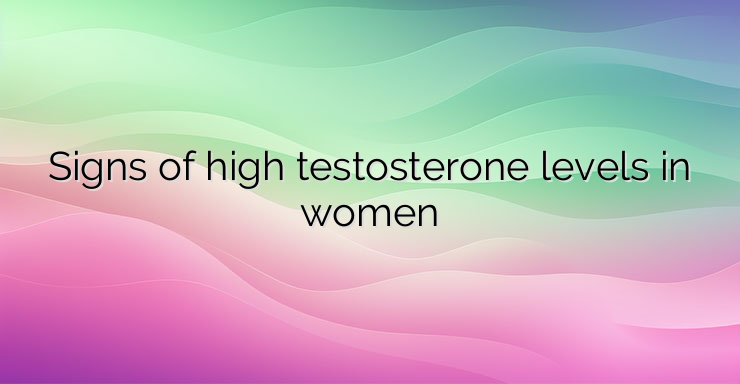Testosterone is primarily known as a male hormone, but it is also produced by the ovaries and female adrenal glands in small amounts. The female body usually produces significantly lower levels of testosterone than the male body. Normal testosterone levels in women range from 15–70 nanograms per deciliter (ng/dL), while levels in men typically range from 280–1100 ng/dL. Hormone levels in the body vary from day to day and also throughout the day. In the female body, small amounts of testosterone are normally released into the blood by the ovaries and adrenal glands. Testosterone helps a person maintain bone mass, generate new blood cells, maintain libido, and regulate mood. The combined effect of testosterone and estrogen supports the growth, repair and maintenance of female reproductive tissues. In most cases, high testosterone levels in women are usually due to an underlying medical condition, such as polycystic ovary syndrome or congenital adrenal hyperplasia. In some cases, an intersex condition may be the reason a person has chromosomal, hormonal, or physiological gender variations that do not fit into the typical binary definition of male or female. In extreme cases, high testosterone levels in women can be an indication of a more serious medical condition, such as ovarian or adrenal tumors. Symptoms of high testosterone in women include acne, excess hair on the face, chest, back or other parts of the body, thinning hair, irregular periods, mood changes, enlarged clitoris, increased muscle mass, decreased breast size, loss of sexual attraction or deepening of the voice. In severe cases, high testosterone levels in women can lead to obesity and infertility. There are various conditions that cause fluctuations in female hormone levels. Some of the leading causes of high testosterone levels in women are polycystic ovary syndrome, congenital adrenal hyperplasia, thyroid problems, and insulin resistance. Polycystic ovary syndrome is an endocrine disorder that affects 1 in 10 women worldwide. The disease interferes with the menstrual cycle and makes it difficult to get pregnant. Common symptoms of the syndrome include: Excessive facial or body hair; Enlarged ovaries (which develop follicles but do not release eggs regularly); Irregular menstrual cycle; Obesity; Acne; Accumulation of fat around the abdomen and upper body. Polycystic ovary syndrome can also lead to numerous infertility problems, increased risk of heart disease, sleep apnea, and type 2 diabetes. Female hirsutism is defined as the growth of excessive facial and body hair. Symptoms of hirsutism include male pattern hair growth, which is usually dark and coarse on the chest, back or face.High testosterone in women can sometimes go beyond simple hirsutism and cause other symptoms to develop in a process called virilization. Signs of virilization include reduced breast size, excessive hair loss, acne, bulky muscles, and deepening of the voice. Congenital adrenal hyperplasia is a collective group of inherited disorders involving the adrenal glands, which produce androgens and cortisol. These hormones help regulate the body’s metabolism and blood pressure. The adrenal glands also secrete the male sex hormones dihydroepidosterone and testosterone. Congenital adrenal hyperplasia lacks an enzyme needed to regulate the secretion of these hormones, resulting in the production of too little cortisol and too much testosterone. The disease occurs in two forms – mild (non-classical) or severe (classical). References: Saran, Sanjay, et al. “Effect of Hypothyroidism on Female Reproductive Hormones.” Indian Journal of Endocrinology and Metabolism, Medknow Publications & Media Pvt Ltd, 2016, www.ncbi.nlm.nih.gov/pmc/articles/PMC4743370/. “Hyperandrogenism.” Hyperandrogenism DermNet NZ, dermnetnz.org/topics/hyperandrogenism/. “Test ID: TTFB Testosterone, Total, Bioavailable, and Free, Serum.” TTFB – Overview: Testosterone, Total, Bioavailable, and Free, Serum, www.mayocliniclabs.com/test-catalog/Overview/83686.


Leave a Reply